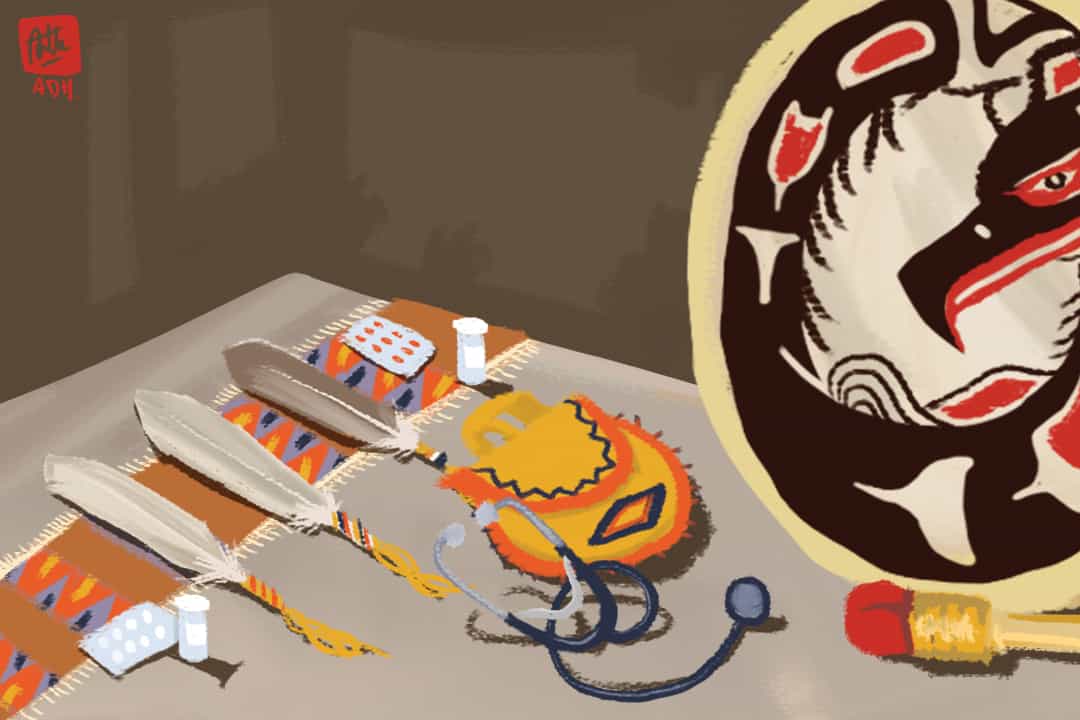Recognition and support of Indigenous peoples and their histories is something that has never been handled in an adequate way by the Canadian government — in fact, the country has, and continues to support the genocide of Indigenous peoples. Given the country’s history of political parties and prime ministers who make empty apologies and promises to Indigenous peoples living in Canada, it rests on the next generation of Canadians to make the actual change Canada needs.
It’s the responsibility of every Canadian to familiarize themselves with the histories and cultures of Indigenous peoples, the original inhabitants of the land that we live on. Taking a class about Indigenous themes at U of T is a great step to becoming the kind of informed citizen that our country needs more of.
Since there are so many options available, we’ve narrowed it down to a short list for anyone who is new to this area of study and is searching for a good place to start.
BIOD13H3 — Herbology: The Science Behind Medicinal Plants
The use of plants in medicine has been an important practice in Indigenous communities for millennia, with documentation going back over 2,000 years. This course at UTSC explores medicine through the lens of the original inhabitants of this land, and relates it to more recent advances in plant biochemistry through lectures, seminars, and labs. If you’re a student who wishes to pursue medicine in Canada, this course is a great opportunity to understand the origins, context, and traditions of the land you will be practicing on and provide insight when working with Indigenous peoples. This semester, the course is being taught by Eliana Gonzales-Vigil.
ESTB02H3 — Whose Land? Indigenous-Canada-Land Relations
For the UTSC student looking to learn more about European-Indigenous relations throughout history, look no further. The course is centred around the history of colonization and its impacts. It also examines recent research and analyses on Indigenous histories from pre-European contact to present day Canada. This semester, the course is taught by Nicole Latulippe, who has some Anishinaabe ancestry.
GGRC28H3 — Indigenous Peoples, Environment and Justice
The course is meant to engage with Indigenous perspectives on the environment, and talk about environmental justice and the relationship between humans and the environment in Canada. Its instructor, Nicole Latulippe, engages students with Indigenous ways of knowing and thinking. In the past, students have read Indigenous Water Declarations and discussed Indigenous water justice and governance.
HIS104H5 — A History of Here
This course covers Indigenous histories that are connected with U of T itself. Students can explore archival studies and embark on a deep examination of the complex relationships between U of T and nearby Indigenous groups as they have progressed over the years. Although this course is offered at UTM, its content explores Indigenous relations with all three campuses of the institution. In fall 2020, this course was taught by Brian Gettler.
INS200H1 — Introduction to Indigenous Truth and Resilience
If you’re looking for a course that gives a comprehensive introduction to Indigenous histories with a primary focus on local Indigenous peoples, this class is for you. Not only will you learn about the history of the lands surrounding U of T and the Indigenous peoples that have lived here, but about local debates over land ownership over the last few centuries. This semester, the course is taught by Verne Ross, who is from Cote First Nation, a Saulteaux First Nations band government.
INS261H1 — Contemporary Challenges Facing Indigenous Communities
If you’re intrigued by sociopolitics and current events, this survey course is for you. It focuses on the challenges that many Indigenous peoples are currently facing, and will engage students from all backgrounds of study. The course often covers topics such as education, culture, economics, and decolonization. This semester, the course was taught by Brenda Wastasecoot, a member of York Factory Cree First Nation.
INS341H1 — North American Indigenous Theatre
Acting is so much more than those overdone Netflix remakes. In this course, students can explore Indigenous theatre in North America. They’ll learn about traditional oratory, ceremony, community responsibility, and social constructs — and the impact of all these factors on current Indigenous theatre.
POL377H1 — Topics in Comparative Politics I
This is an introductory course in the field of comparative politics at UTSG. In 2020, the course was taught by Uahikea Maile, a Kanaka Maoli — Indigenous Hawaiian — scholar and activist. The course’s theme was Indigenous feminist and queer theories, and students looked at how settler colonialism intersects and interacts with race, gender, class, sexuality and Indigeneity across history and in the present day.
If none of these course descriptions have struck your fancy, there’s no need to worry. There are so many more options available to peruse that will help expand your knowledge about topics related to Indigenous peoples.
If there’s no room on your timetable, remember that academia isn’t the only way to learn — books are also a great resource to use, and are a fantastic way to learn about Indigenous peoples without the pressure of a graded environment.
Happy studying!


